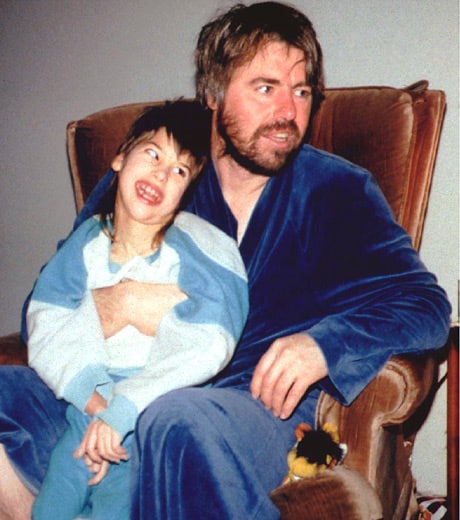Euthanasia is undoubtedly an issue that plagues the minds of those living with children or adults who are severely disabled. Rarely is one found to have a ‘neutral’ outlook upon it; that is, a side must be chosen, for or against. It is too delicate a topic to be ‘in the middle’ about.
Over the years, cases involving euthanasia have caused massive controversies as to whether or not it is feasible to take the life of another human being in order to ‘put them out of their misery’.
One of the strong questions raised in my mind is: Does the killer really want to put the victim out of their misery? Or is it the killer who is under the extreme pressures of living with the victim, and is it their own lifestyle that they are truly fed up with?
In the Robert Latimer case, as in many other cases of euthanasia, it can never be proven whether or not Latimer killed his young daughter Tracy to ‘save’ her, or to save himself.
While I have never experienced living with someone who is severely disabled, I have had the chance to discuss the issue with many friends and associates.
From what I have learned, it is, indeed, an extremely tough matter to deal with. While no-one I have spoken to has been suicidal over the matter, they have seen the true pain and misery that some severely disabled individuals are forced to deal with every day of their lives.
Still, many agree with myself on the point that a human life is just that, a human life; and that everyone alive has the right to live, no matter whether or not it is under tougher circumstances than another person. Nobody has the right to take the life of another person, and technically, the law states that nobody has the right to take their own life as well.
A severely disabled person may have to deal with much pain in their lives, but they are entitled to the right of simply enjoying being alive, and denying them that right would be an infringement upon their freedom.
Latimer should have taken the law into deeper consideration before taking his daughters life. He may have seen the suffering that she went through, but it is evident that he had some sort of strange love for his daughter. Indeed, he did want ‘what was best’ for Tracy, but possibly what he was after was what he thought was best. He valued her rights as his daughter, unfortunately he did not value her rights as a human being.
As euthanasia is one of the most controversial issues in today’s society, up there with abortion and the legalization of marijuana, there is a close 50/50 opinion base on the topic. Thus, it would seem either extremely difficult for a jury to make a reasonable call on whether or not Latimer should have been guilty.
As stated in a Toronto Star article from November 19, 1994, “to acquit him…would have put all disabled people in Canada…at rise of being killed by others who felt they would be better off dead”. This raises an interesting point: would completely unnecessary murders take place if euthanasia were legalized? Likely.
A killer with a good defense would attempt to prove that they killed a disabled person to put them out of their misery, when indeed they may have had completely different, perhaps personal reasons to murder the individual.
Our system of laws is right in finding that to legalize euthanasia would far a massive risk upon the elderly, sick, and disabled of our society. This is a risk for which a law should not have to take the blame for, and changing this law would only encourage that.
As for Latimer’s sentence; this raises the ever-controversial question of ‘how can you put a price on a person’s life?’. Will ten years in prison change the way Latimer feels about his actions? No is the most likely answer to the question, as Latimer clearly stated “I still feel what I did was right”.
So what good is there in putting Latimer away for ten years? Should the sentence be a harsher one? Possibly, euthanasia should be considered cold-blooded first-degree style murder, with a full life sentence without parole. I feel that taking the life of another human is cold-blooded, no matter how you look at it; thus, the sentence should be that of a greater extent than the one that Latimer received.

